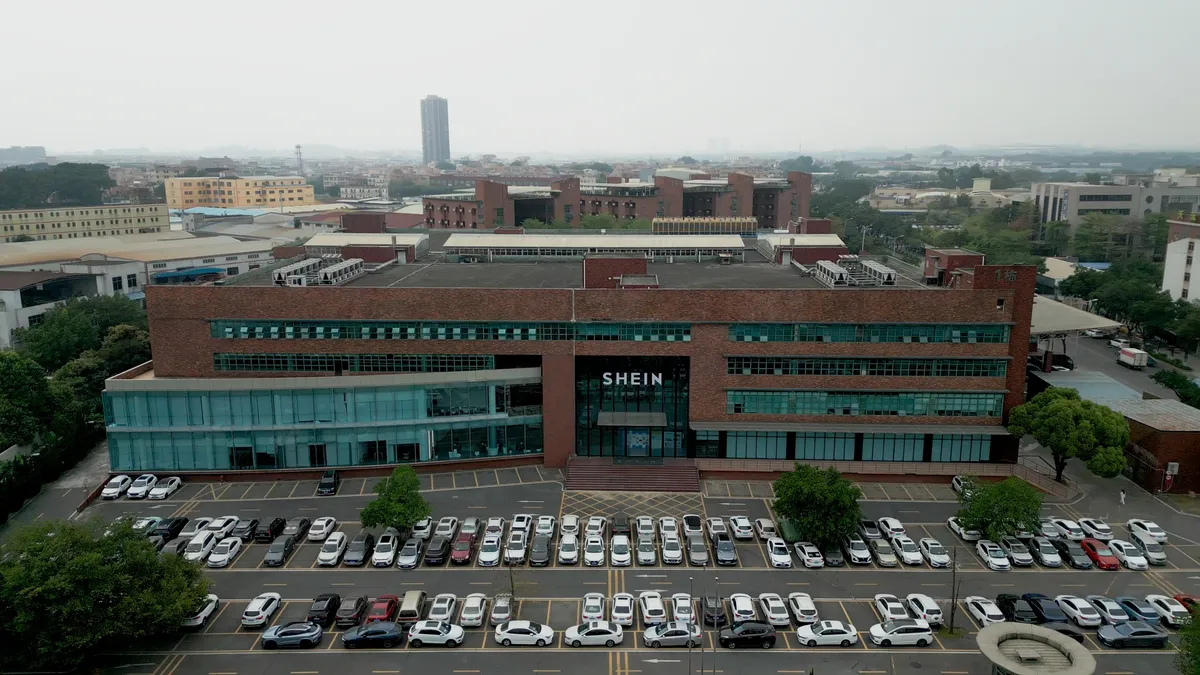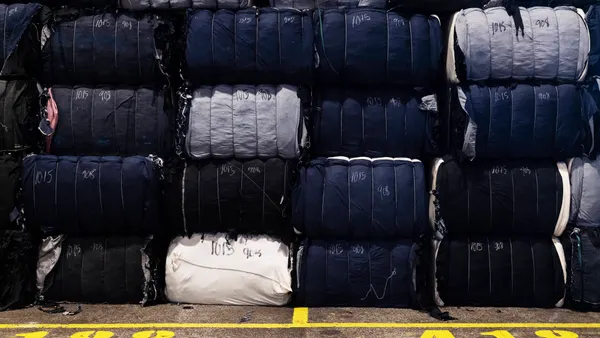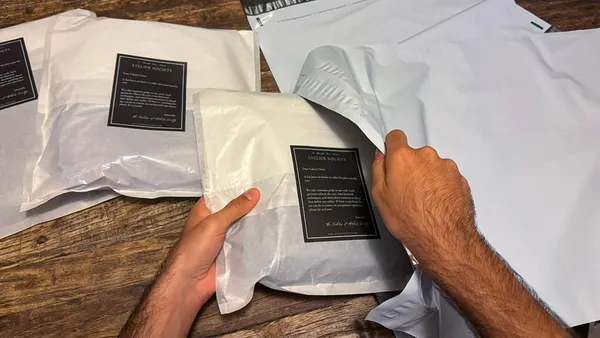Dive Brief:
- Shein’s Center of Innovation for Garment Manufacturing in Guangzhou, China, received a Zero Waste to Landfill Management System certification, according to a press release Friday.
- The certification is from third-party auditor TÜV Rheinland, an organization which previously certified two of Shein’s other facilities in February. Shein didn’t identify the other facilities in its announcement.
- To receive certification, the fast fashion giant identified ways to minimize the Center of Innovation for Garment Manufacturing’s impact on land pollution through implementing a “reduce, reuse and recycle” approach toward waste. It created a waste management strategy in line with TÜV Rheinland’s certification standards, the company said in its press release.
Dive Insight:
Founded in 2022, Shein’s Center of Innovation for Garment Manufacturing is part of the company’s innovation, research and development efforts. It’s meant to study waste-saving and efficiency-optimizing tech that can be scaled across Shein’s entire supply chain, and it offers training for suppliers and consultancy services on factory site selection, facility design and layout.
In 2023, Shein invested an undisclosed amount of money to help its suppliers upgrade their equipment, technology and processes. In August of this year, it announced that it had developed more than 100 sewing and garment-making tools for its suppliers and had filed for 10 patents, according to a press release.
Shein’s business model, which quickly produced trendy clothing based on consumer demand, has drawn controversy based on labor and legal concerns, as well as environmental impact.
The company has launched various efforts to address textile waste issues across its supply chain, Shein said in Friday’s release. Last year, it introduced waste and recycling initiatives at 14 of its facilities that resulted in more than 86% being recycled or thermally recovered as of December 2023, according to the company.
It also has partnered with circular tech company Queen of Raw to collect deadstock materials including polyester, spandex, nylon and rayon to avoid consuming new textile resources, according to the release.
Meanwhile, certifier TÜV Rheinland works with companies worldwide on testing services and generates revenue of about 2.3 billion euros, or $2.4 billion, according to its website. It has also provided certifications for companies in the automotive and consumer product industries.
Editor’s note: This story has been updated to include the location of the Center of Innovation for Garment Manufacturing.











